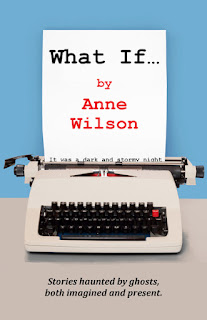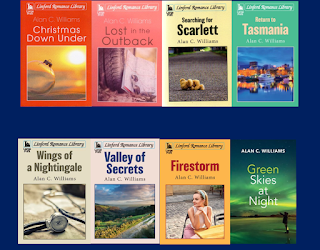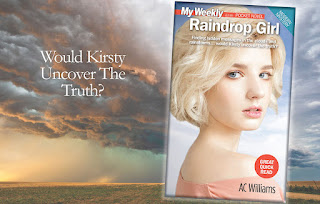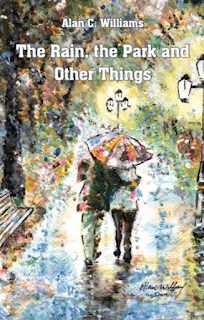
Many of us are
feeling anxious and horrified at what is happening in the Ukraine. Some
unprecedented sanctions are now being taken against Russia and that must be
affecting the lives of ordinary Russians. Truth is being stranger than fiction
again. If you’d written this as a story two years ago might some publisher have
accuse you of being too far-fetched? Even
as we were entering an extraordinary situation at precisely that time.
I took two taxis
today and they cost considerably more than the last time I made that journey.
Yes, there was heavy traffic on the way into town but coming back was quick. Hardly
surprising; we passed several petrol stations and the prices were
horrific.
Is it part of our remit
as writers to write and record what we observe from whichever angle we’re
seeing it?
And yet; the sun
is shining outside, there are green shoots everywhere. The snowdrops and
crocuses are in full bloom and I even saw some daffodils yesterday. Well, it is 1 March. Nature is just getting
on with it.
Current writing
I’ve now well into the sixth book in the Schellberg Cycle. This is Helga’s story.
Helga is a Holocaust survivor and the story is set partly in World War II and
partly in 2001. The more modern part is set in North Wales and I have to learn
about sheep farming in Wales! The story is as ever taking on a life of its own
and the plot is even more intricate than the way I’d seen it.
I have just one short story out this month and actually in
CafeLit: https://www.cafelitmagazine.uk/2022/02/afterwards.html This was in response to a prompt. “Afterwards.” I deliberately used the word “after” a lot.
The Young Person’s Library
This month the The Hive and Bookshop.org have made some suggestions.
So, this month I’ve added
Refuge by Anne Booth
and Sam Usher
This is a picture book that tells the less well celebrated
part of the nativity when Joseph, Mary and Jesus have to flee to Egypt. Charmingly
it is told from the point of view of the donkey that accompanies them.
Santa’s
Lost Buttons by Kirsty-Louise Garbutt and
Meneer Marcleo
This is another picture book. Children can have fun finding the
lost buttons in the pictures. And there is a surprise at the end of the book as
well.
I even added one book today but that will appear in next
month’s newsletter.
Current reading recommendation
I’m recommending
today Dangerous Crossing by Rachel Rhys
A mysterious
adventure that navigates tricky cross-class relationships.
Who is the odd-looking
woman who has murdered someone and who has been killed?
The book opens with
this figure being escorted by two policemen from a ship that has docked in Sydney.
We are kept guessing right up unto the very end. In the meantime, we meet many
women who may have committed this crime and we might even decide there are several
passengers on board the ship that we might feel like murdering if we were
trapped with them for several weeks
The action takes
place in 1939 and our travellers arrive in Australia within a few hours of the
beginning of World War II. Protagonist Lily is travelling on an assisted
passage to find work in service. This scheme existed to remedy a labour
shortage in Australia. Young women
travelled tourist class and were well looked after as well as being given the
chance to see something of the world before they settled down into domestic
service. They would have to stay for at least two years.
Rachel Rhys draws
her characters well and keeps us guessing about what actually happens in Dangerous Crossing.
Find your copy here.
Giveaway
Note: these are usually mobi-files to be downloaded to a Kindle. Occasionally there are PDFs.
This month I’m
offering my The Tower, the third story
in the Peace Child series.
Kaleem has given up the love of his life in order to protect her. He now
lives and works on Zandra. A sudden landquake, not known on the planet for many
years, destroys many of the forests his father has planted to bring life back
to the planet. The new relationship Kaleem has helped to establish between the
Terrestrans and the Zandrians is also under threat. A third party gets involved
and Kaleem has to use all of his diplomatic skills to keep everything on track.
Mistakes cost him dearly and he looks set to lose Rozia for a second time. The
Babel Tower mystery, others mysteries and sadness plague him. Can he find a way
through to fulfil his role as the Peace Child?
Find out more. Grab your copy and lots of other
freebies here.
And please, please, please leave a review when you’ve
finished.
Note: Normally my
books and the books supplied by the imprints I manage sell for anything from
£0.99 to £10.99. Most on Kindle are
about £2.99 and the average price for paperback is £7.00. Writers have to make
a living. But I’m offering these free samples so that you can try before you
buy.
The Schellberg Project
The posts may be helpful for teachers who are familiar with
the Schellberg stories or who are teaching about the Holocaust. They may also be interesting for other readers
of historical fiction.
Sometimes I also write about what might be of interest to
other writers.
I’ve added two posts this month. One explores how the hate
develops and how this is happening in my latest novel in the cycle: Exploring
the Hate.
I also define the difference between a series and a cycle: The
Difference between a Series and a Cycle
Some notes about my newsletters and
blogs
They do overlap a little but here is a summary of what they
all do.
Bridge House Authors For all those published by Bridge House, CaféLit,
Chapeltown or The Red Telephone or interested in being published by us. General
news about the imprints. News for writers. Links to book performance. Sign up here.
The Bridgetown Café Bookshop where
you can buy my book and books published by Bridge House Publishing, CafeLit,
Chapeltown Books and The Red Telephone.
Visit us here.
Chapeltown Books News about our books. Sign up here.
The Creative Café Project News about the project and CaféLit –
for the consumer rather than for the producer.
Sign up here.
Gill’s News: News about my writing, The Schellberg Project, School
Visits and Events. Book recommendations and giveaways. Find it here.
Pushing Boundaries, Flying Higher News about conferences and
workshops to do with the young adult novel. (infrequent postings) Sign up here.
Red Telephone Books News about our books and our authors. Sign
up here.
A Publisher’s Perspective Here I and some other editors blog as
a publisher. Access this here.
The Creative Café Project Listings and reviews of creative
cafés. See them here.
CaféLit Stories Find these here
Gill James Writer All about writing and about my books. View
this here.
Gill’s Recommended Reads Find information here about books that
have taken me out of my editor’s head and a reminder of the ones I’ve
highlighted in this newsletter.
Gill’s Sample Fiction Read some of my fiction here.
The House on Schellberg Street All about my Schellberg project.
Read it here.
Writing Teacher All about teaching creative writing. Some creative writing exercises. Access this here.
Books Books Books Weekly offers on our books and news of new
books. Find them here.
The Young Person’s Library The children’s
book catalogue. Access it here.
Fair Submissions Find
it here.
Opportunities for writers are added several times a day. Roughly once a
month I send it out to a list. If you would like to be on that list, sign up here.
Happy reading and
writing.





